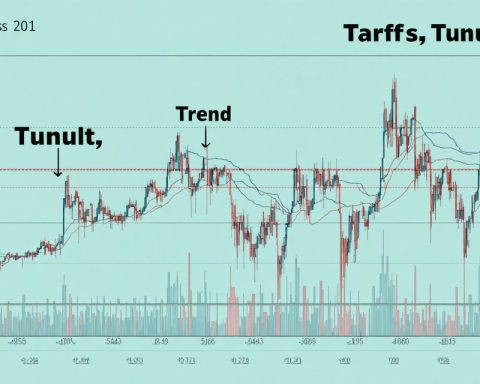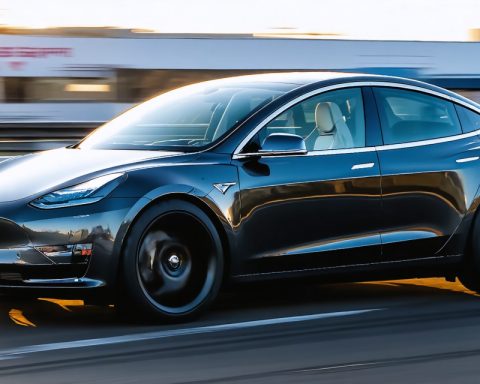Market Tensions Between Indonesia and Apple
The latest standoff between Indonesia and Apple centers on the release of the iPhone 16. Authorities in Indonesia have made it clear that Apple cannot launch its new device unless the tech giant significantly invests in local manufacturing. With a staggering 2.3 million iPhones sold in 2023 alone, Indonesia’s government wants more local production to foster industrial growth.
Initially, Apple proposed a $100 million investment but later increased this commitment to $1 billion for a production facility in Batam. However, despite these concessions, the iPhone 16 is still absent from Indonesian retailers as of early January—indicating that the Indonesian government may be holding out for additional investments, particularly in research and development.
Indonesia isn’t new to using market access as a bargaining chip. The government has previously restricted access to platforms like TikTok and Netflix until receiving favorable investment terms. This strategy reflects Indonesia’s growing influence in the global economy, as the nation feels empowered to negotiate aggressively.
Unlike a decade ago, when the domestic market for premium smartphones was smaller, the landscape has changed. With increased purchasing power, Indonesia is poised to demand more from companies like Apple. Other smartphone makers, such as Oppo and Honor, are ramping up local production, sending a clear message that Indonesia is not reliant on Apple alone. As economic nationalism rises, it’s likely that Indonesia will continue to assert itself in future negotiations with multinational corporations.
Examining the Larger Implications of Market Tensions Between Indonesia and Apple
The standoff between Indonesia and Apple surrounding the release of the iPhone 16 is emblematic of a broader trend in which emerging markets leverage their economic power to negotiate for more lucrative terms with multinational corporations. This approach—where market access becomes a bargaining chip—signals a fundamental shift in the dynamics of global trade. As countries like Indonesia demonstrate increased economic nationalism, tech giants are forced to reassess the balance of power in these negotiations.
This situation has significant implications for society and culture within Indonesia. The push for local manufacturing not only aims to bolster the national economy but also fosters a burgeoning tech ecosystem that could elevate local talent and innovation. By demanding investments in research and development from giants like Apple, Indonesia could inspire a wave of technological advancement that nurtures homegrown companies, creating a vibrant manufacturing sector that supports local employment.
Moreover, the escalating tensions could prompt environmental considerations. Increased local production may lead to enhanced sustainability measures, as companies must adhere to Indonesia’s environmental regulations. This could become a model for other developing nations to prioritize indigenous manufacturing while addressing ecological challenges.
Looking ahead, Indonesia’s assertiveness may trend towards shaping global supply chains. As the country continues to enforce its demands, we could see a shift where multinational firms are compelled to diversify their production facilities globally. The ramifications of such a trend could redefine not just Indonesia’s economic landscape, but the operational strategies of global firms facing similar negotiations worldwide.
Indonesia versus Apple: A New Era of Market Negotiations
Market Tensions Between Indonesia and Apple
The ongoing negotiations between Indonesia and Apple regarding the release of the iPhone 16 highlight a significant shift in how countries with emerging economies are navigating their relationships with multinational corporations. The Indonesian government has made it clear that the launch of Apple’s latest device hinges on substantial investments in local manufacturing. This demand follows a remarkable sales figure of 2.3 million iPhones sold in Indonesia during 2023, indicating the smartphone market’s pivotal role in the nation’s economic landscape.
Investment Requirements
Apple’s initial investment proposal of $100 million was seen as too modest by Indonesian authorities. In response to the government’s stringent requirements, Apple raised its investment commitment to $1 billion for the establishment of a production facility in Batam. However, despite this increase, the iPhone 16 remains unavailable in Indonesia as of early January, suggesting that the government is seeking even deeper commitments—possibly in research and development or further local manufacturing capabilities.
Context of Market Access as Leverage
Indonesia’s strategy of using market access as a bargaining chip is not unprecedented. Previously, the government restricted platforms such as TikTok and Netflix until it received favorable investment terms. This tactic reflects a broader trend where developing nations are becoming more assertive in negotiations with global giants, recognizing their increasing influence in the global economy.
Competitive Landscape
The competitive landscape in Indonesia’s smartphone market has evolved. A decade ago, the premium smartphone segment was relatively niche, but now, with a burgeoning middle class and increased purchasing power, the demand for premium devices has surged. Other smartphone brands, including Oppo and Honor, are ramping up local production, which further demonstrates that Indonesia is leveraging its market position effectively—showing that it is not solely dependent on Apple.
Implications for Multinational Corporations
As economic nationalism grows, countries like Indonesia are likely to continue asserting their interests in negotiations with multinational corporations. This shift may redefine how companies like Apple approach their investments and operations in emerging markets.
Conclusion
The developments surrounding the iPhone 16’s release in Indonesia illustrate a broader trend where emerging economies are not merely passive recipients of foreign investment but are becoming key players in negotiations. Companies must adapt to this new reality if they wish to thrive in markets that are increasingly driven by local aspirations and industry demands.
For more insights into market dynamics and technology trends, visit Apple and explore various aspects of the smartphone landscape.



















